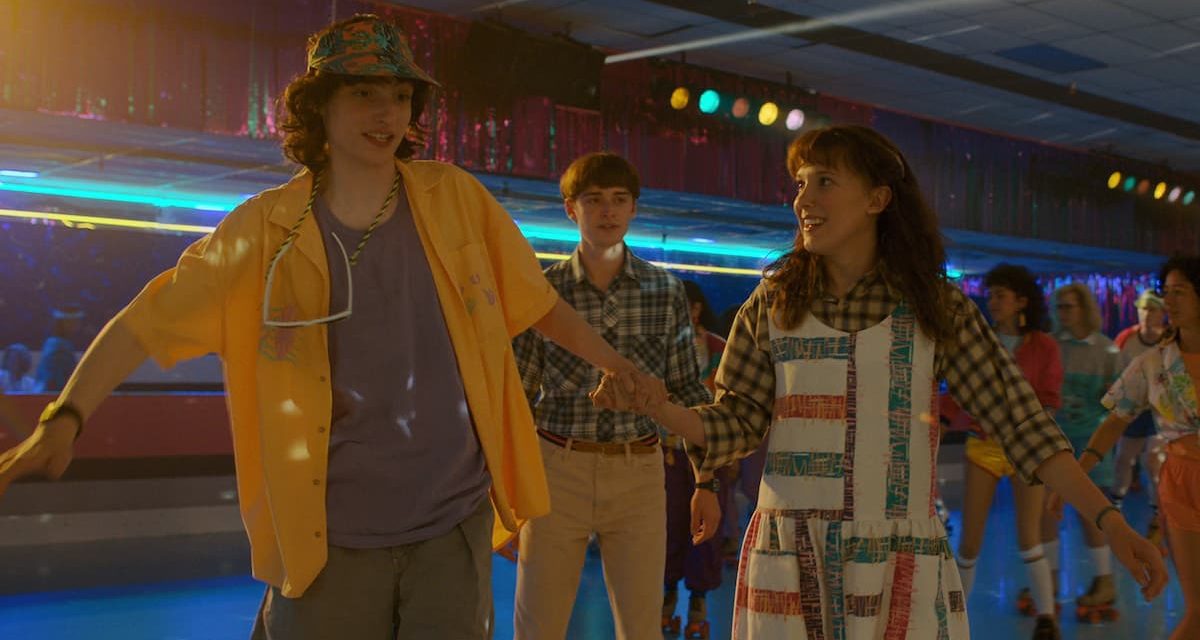Like many of you, I immediately binge-watched season four of Stranger Things the second it hit Netflix. I am slightly obsessed with the ‘80s—the music, the fashion, etc.—and had been waiting with bated breath for this new and very consequential season.
I could go on and on about the upside down and that plot twist with Number One. Instead, I am focusing on another plot point – and I don’t mean whether I’m Team Steve or Team Jonathan.
I’m talking about Will Byers’ queerness, the public reaction to his coming out, and what that reaction says about our relationship with queer history.
Wait. Will Byers Is Gay?
He is! In fact, the Duffer Brothers,who created Stranger Things , started laying the groundwork surrounding Will’s sexuality from the series’ start, with many scenes referencing will as queer, fairy and gay.
So Will is gay. What’s the big deal?
It’s HOW he came out that has fans in a tizzy. Will never says the words, “I’m gay,” but he undeniably acknowledges his queerness in a season 4 scene with his brother, Jonathan.
Enter the tizzy. Because he never says the words, some fans disregarded the scene with his brother. The Duffer Bros had already been accused of queerbaiting in the past, and to them this was just another example.
Others thought it was a cop out, or an insufficient example of what coming out looks like. I even saw a few TikTok videos criticizing Will and his inability to say the words. But when we remember context, we realize Will’s coming out makes perfect sense.
I Found the Big Deal
Imagine: it’s 1986. Ronald Regan is president. The Cold War is raging. The Berlin Wall is still standing tall and proud.
Sodomy laws forbid same-sex relations, in particular between gay men, in most U.S. states. Same-sex marriage is but a long and distant dream. Gay men nationwide are dying from AIDS, creating heightened discrimination.
To put it plainly, 1986 was not a safe time to “come out..” It was unsafe for white cisgender gay men,and even more dangerous for marginalized identities. Will is undoubtedly living in a reality where both his physical and emotional safety could be at risk if anyone found out he was gay.
This is why Will did not explicitly scream his queerness to the rooftops. The anti-gay messaging in 1986 was overwhelming, forcing Will to hate every part of his true identity. He even said it himself: “When you’re different, sometimes you feel like a mistake.”
Connecting with Our History
The indifferent and even critical responses to Will’s coming out brought me to a sad realization: queer people are often disconnected from the community’s history.
Very few queer people learn about their history in school. HIV/AIDS is maybe touched on in a health class. Events like Stonewall, the murder of Matthew Shephard, and the intense queer hysteria that swept the United States during the Cold War are usually left untouched.
As queer people, many of us fail to understand how the HIV/AIDS epidemic not only touched gay men, but all parts of our communityWe fail to discuss how queer people today carry the historical traumas of those who came before them—how we continuously operate in a world built for and run by heterosexual and cisgender people.
More importantly, whatever queer history we do learn is heavily whitewashed, leaving out the immense contributions from queer pioneers of color like Bayard Rustin and Marsha P. Johnson.
In some ways, the monumental progress of the past 20 years has made us complacent. We forget that rights were not given, but earned. And just as quickly as right were earned they can be stripped away—just like we saw with Roe v. Wade about two months ago.
Using History to Fight for Tomorrow
Despite progress, this world we live in remains unsafe for so many queer people. The circumstances that forced Will to internalize his homophobia persist today. Until we all come to understand our history and how we got here, we’ll never be able to shake off the chains of hatred to which we’ve been tied.
The present moment matters. So, too, does the past. So, too, do the quiet, even unspoken stories like Will’s.


